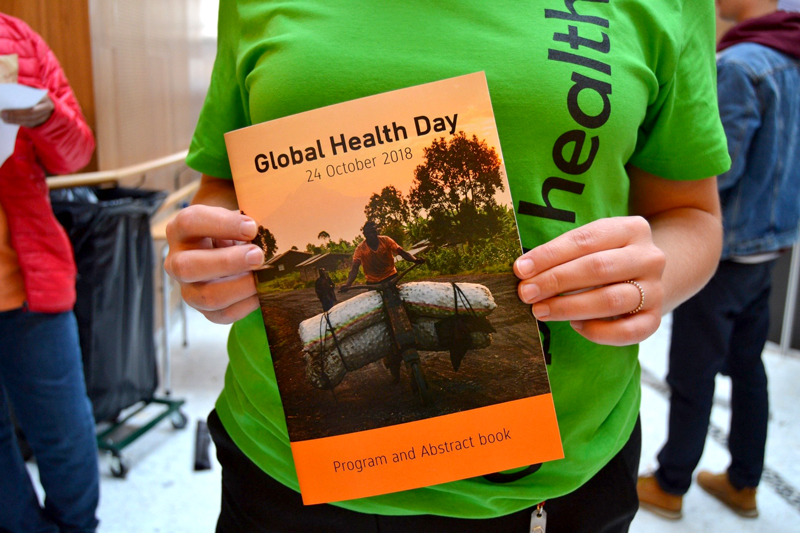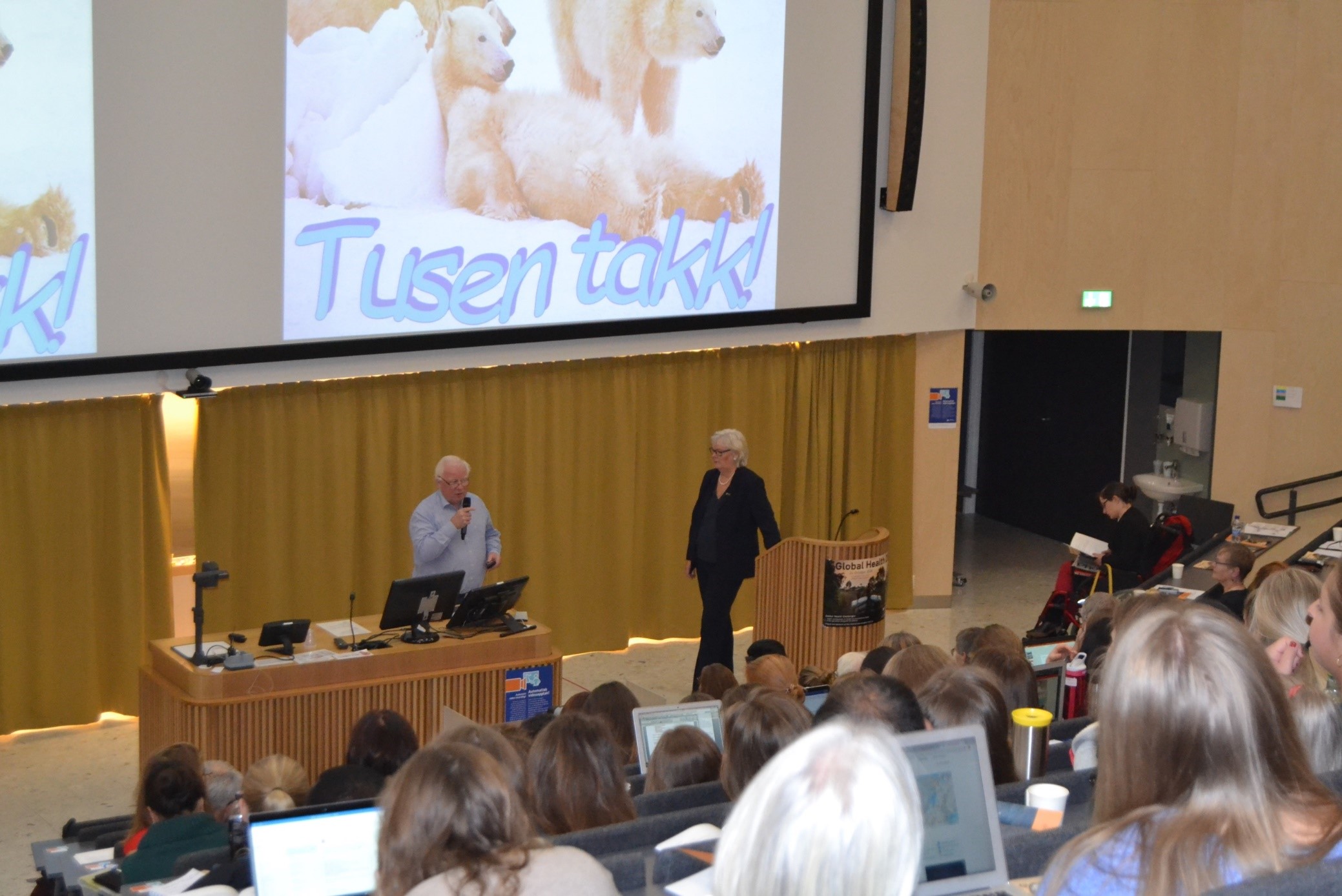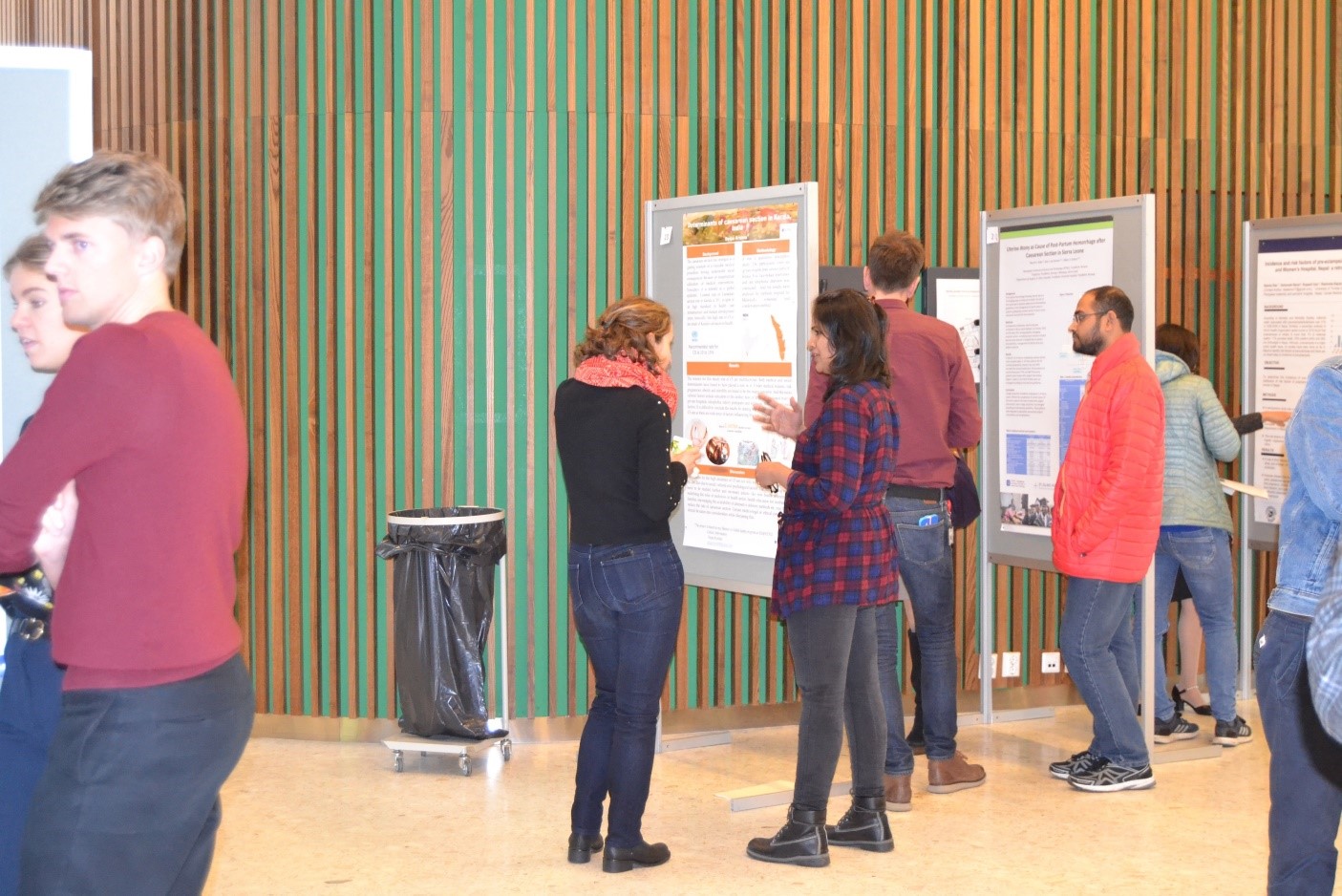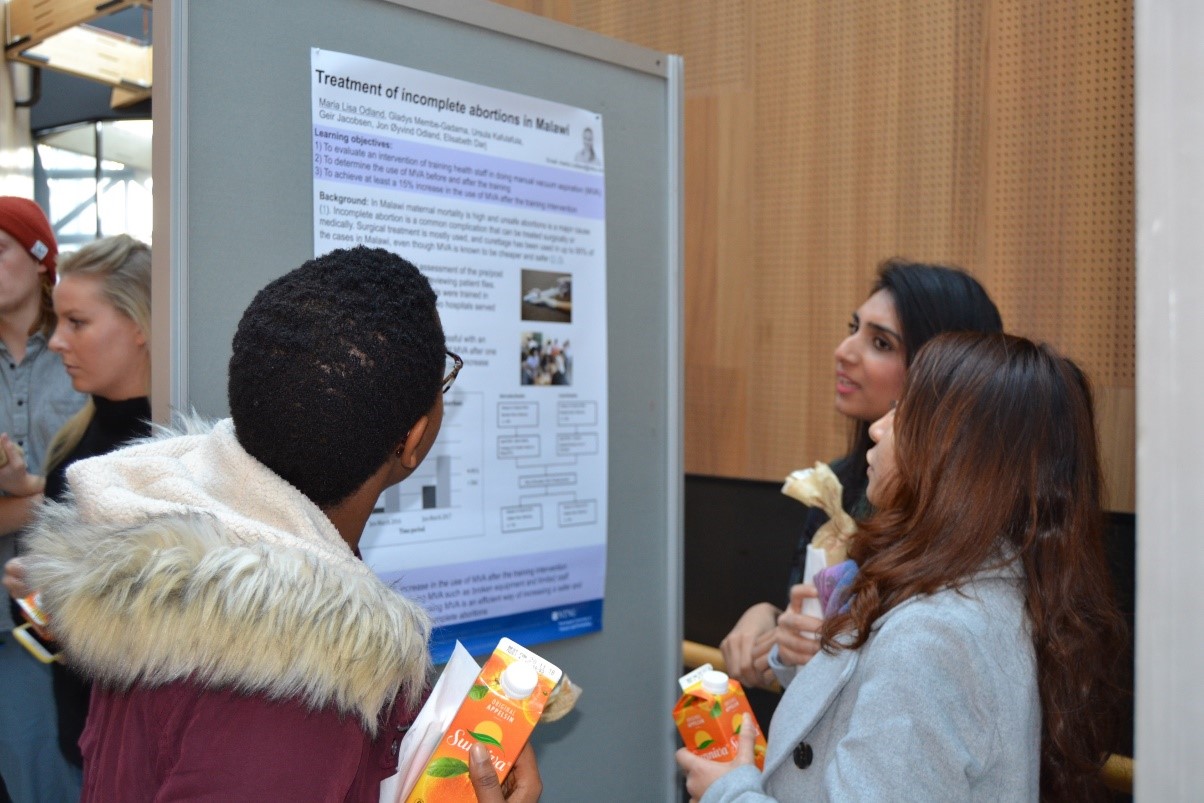By Othelie Ree Harangen, masterstudent in Global health
When there are more then one serious global health challenge, NTNU’s Global health day 2018 took the challenge and managed to make room for two main topics this year – both serious, but have different consequences for human health.
The first part of the day was dedicated to climate change and the different effects it brings to human health and human adaption.
Professor Arja Rautio from the University of Oulu in Finland, started of the day with talking about the general connection between climate change and human health; how the melting ice in the Arctic had consequences for life styles and the availability to food. Professor Rautio ended her presentation talking about the positive outcomes of earlier research, and her role and participation in a stainable development group that are working on bettering the challenges that comes with climate changes.
NTNU’s own Professor Jon Øyvind Odland followed by talking about the Arctic dilemma and the consequences that follows for reproductive health. Even when talking about something so real and serious, Prof. Odland found a way to lighten up the mood of the 300 participants in the auditorium. The topic of climate change continued with Ivania Joys Garth Sambola and her good description on how the climate change challenged the health system in Nicaragua by increases in vector diseases.
After seeing how climate change is challenging health in population groups around the world, Prof. Tilman Ruff rounded off with “the planetary health imperative to eradicate nuclear weapons”. His talk seemed to be both emotional and motivating to the audience.
In between the two main topics of the day, there was a long break where the participants could get lunch and go on a global journey through the “poster walk” in hall outside. The hall was filled with different abstracts on research from students and researchers. There were also a competition of “best poster”, and you could vote electronically on the 22 poster abstracts that was submitted.
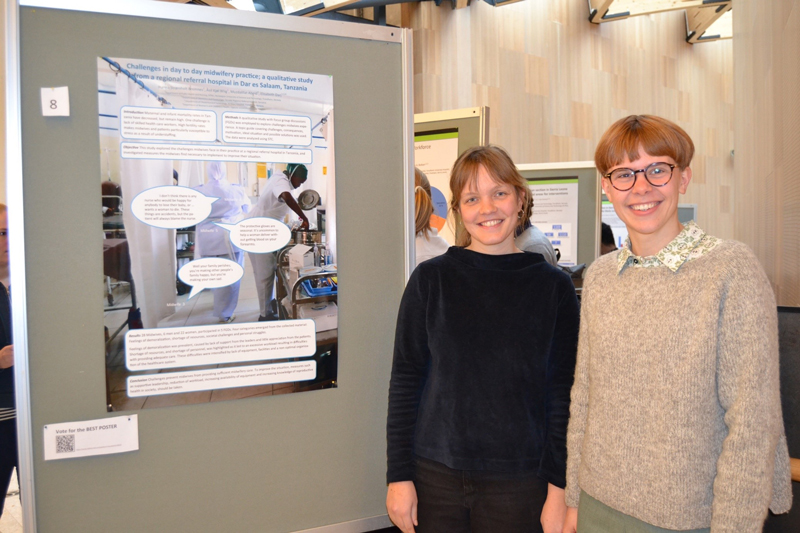
The winners of the “best poster” competition was Hanna S. Bremnes and Åsil K. Wigg, Medical students, NTNU with their research on “Challenges in day to day midwifery practice; a qualitative study from a regional referral hospital in Dar es Salaam, Tanzania”.
Part two of the Global Health day was dedicated to the new generation living with HIV infection. The global HIV picture started with a talk on; how it is to live with HIV in Norway, and hearing strong stories told by Leif Ove Hansen, Chairman of board HivNorge. Then Hany Zekaria Meås gave a biological picture on the inflammation process and why it plays a big role in finding the best solutions to fight HIV. Even with something this intricate, NTNU´s new post doc, Hany, managed to make the audience understand HIV on a molecular level.
According to the WHO there were around 3.2 million children living with HIV in 2013, and a majority of them got HIV from their mothers during pregnancy, birth or breastmilk (WHO). Prof. Thorkild Tylleskär gave a talk about the transmission chain of HIV and how to best prevent mother-to-child transmission. According to the talk by Prof. Rashida Ferrand we can see that children who grows up with HIV have high risks of growth and cognitive failure. She is currently investigating approaches to improve outcomes across the HIV prevention.
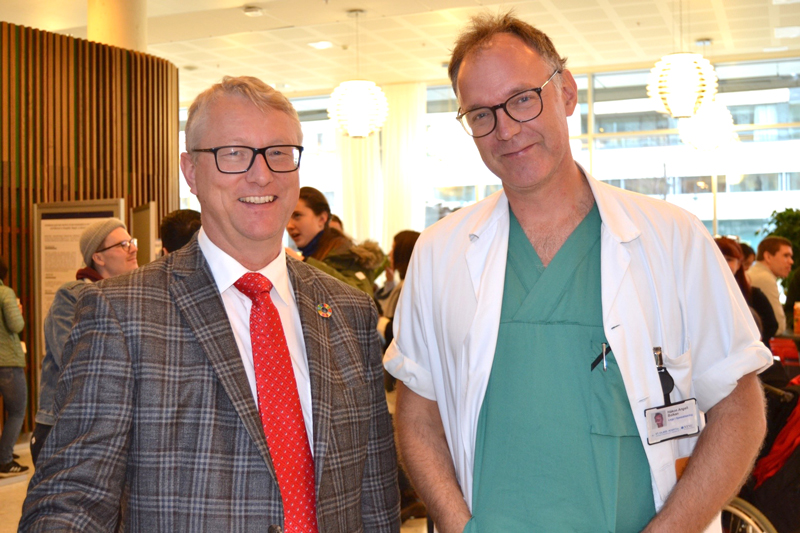
From the left; Professor Thorkild Tylleskär, here with Dr. Håkon Angell Bolkan that have been supervising some of the research that was presented in the “poster walk”.
The last talk of the day was given by Prof. Hellen Myezwa, Head of department in the physiotherapy department at the University of the Witwatersrand. Her work on mainstreaming HIV in physiotherapy education and the talk on understanding HIV disability gave a hopeful and motivational end on the talks about HIV infection.
The global health day 2018 aimed to increase the cooperation the Faculty of Medicine and Health Sciences, NTNU, has with institutions and individual scientists around the world by providing professional input and inspiring to further research on global health. The Faculty of Medicine and Health Sciences, NTNU, has together with Central Norway Regional Health Authority decided to invest more in global health. The future looks promising!
Thank you to all that contributed on this year´s Global health day and hope we see you next year for the 10th anniversary!

